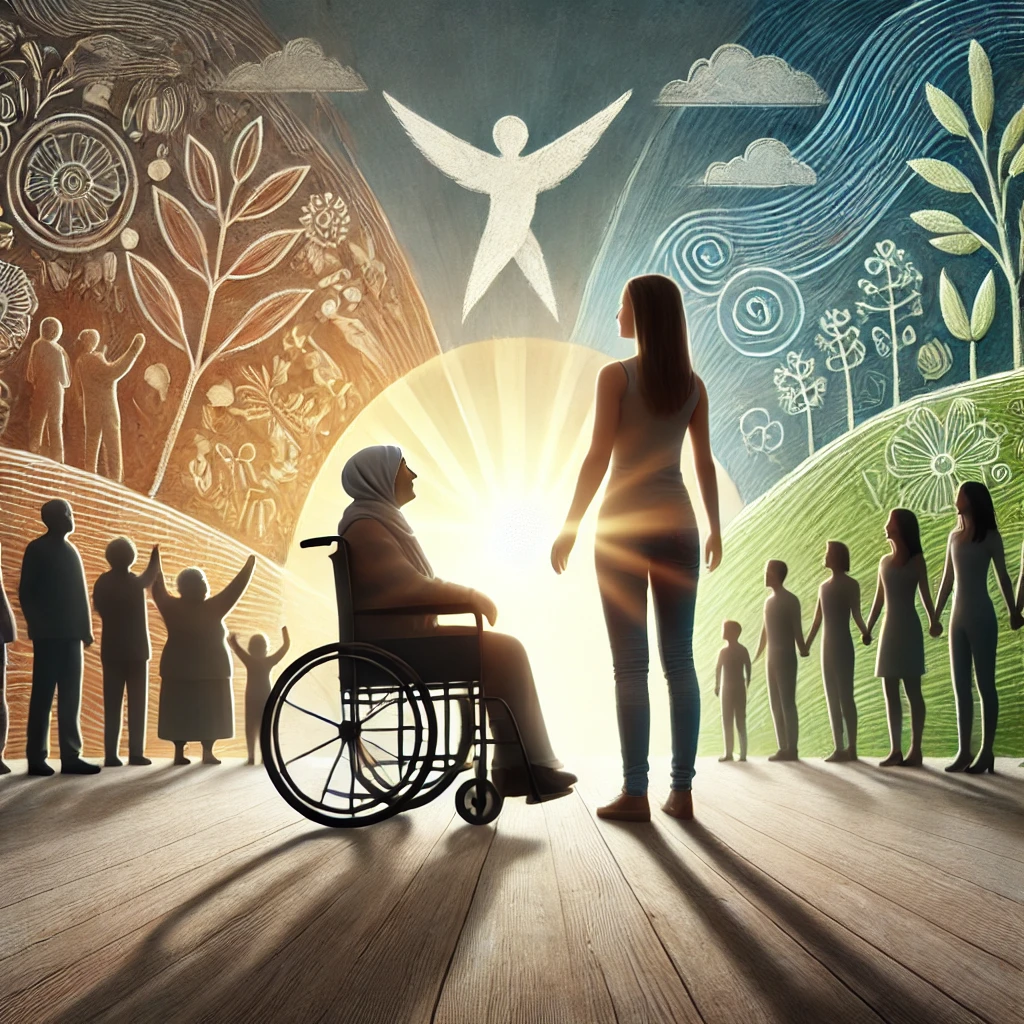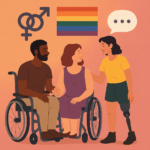Advocacy is a very personal path that tests, changes, and strengthens you; it is not only a career. Having spent years for women’s and disability rights, my work has been primarily focused on development than it has been about pushing change. From starting “Cross the Hurdles” to bargaining the murky waters of advocacy, every step has imparted priceless lessons on resiliency. These are some of those teachings based on actual occurrences that have shaped my road.
1. Self-acceptance commences the resilience process.
Contracting polio at three years old was a defining moment that helped me to view the world and myself. Early on, I struggled with social prejudices that sought to define my limits for me. But I came to claim my identity over time—that of a woman as well as a person with a handicap. This was about thriving and laying a basis of self-acceptance that would help me to confront preconceptions and advocate for inclusiveness, not only about surviving.
One of the most liberating insights was that I could advocate more truly for others by respecting myself. Embracing who I was— faults and all—found me power and freedom that drove my resilience.
2. Empathy Has Superpowers
Advocacy has given me front-row access to innumerable tales of suffering and fortitude. Reading these stories—sometimes tragic, sometimes hopeful—has strengthened my empathy and dedication. Empathy is about standing by someone else, using your voice when they cannot, and learning to direct common frustrations into significant solutions—not only about knowing their experience.
Because it turns the emphasis from personal failures to group development, empathy drives resilience. It helps me to remember the reasons for my job and the fact that we are stronger moving ahead together.
3. Adversity Offers a Growth Catalyst
Every activist is aware of the sting of rejection or the annoyance that comes with systematic inertia. These difficulties have, for me, become catalysts rather than merely hurdles. Launching ‘Cross the Hurdles’ in 2010, my goal was to remove obstacles for those with disabilities. The opposition I encountered drove me to innovate—that is, to consider imaginatively accessibility and awareness.
Overcoming hardship has shown me that resilience is about turning setbacks into chances for growth and autonomy rather than only about bearing them. Every time I faltered, I got back up with greater will and a better view.
4. Create a Support System Right Now
Among the most crucial things I have discovered is that resilience is not an individual project. Particularly when structural change seems like an uphill fight, advocacy may be alienating. Finding allies—from fellow activists to mentors to community members—has changed everything, though.
These connections have been my lifeline when I have felt unsure. They have reminded me that I am not fighting alone and that, taken together, we can magnify one another’s voices to propel actual transformation. Cooperation has demonstrated for me the power of group resilience.
5. Recognising The Wins Count
In advocacy, wins can at times appear unusual and far apart. For this reason, I now celebrate every victory—no matter how minor. While the Henry Viscardi Achievement Award in 2019 and the National Award for Empowerment of Persons with Disabilities in 2016 were amazing achievements, the most often significant events are the smaller, quieter ones like witnessing a young person receive education for the first time.
Acknowledging these times drives me forward. They act as reminders that, although one step at a time, change is achievable.
6. Resilience: An Ongoing Trip
Advocacy is a marathon not a sprint. I now see that maintaining resilience calls for regular self-care and introspection. It entails understanding when to pause and refuel as well as when to advance. Advocacy has helped me to see my limits, treat myself well, and honour the journey as much as the end point.
Looking back, I find strength in the innumerable people who have cleared the path for me and the next generations who will gain from our work. This viewpoint helps me to stay going even if the route seems difficult since it grounds me.
In summary
Campaigning for gender and disabilities has been a road of resiliency formed by self-acceptance, compassion, and the strength of community. It has helped me to see that difficulties present chances for development and change rather than only hurdles to be passed. Every little step forward advances a more inclusive and fair society.
To my fellow activists: your voice counts, your efforts count, and your resiliency is changing the planet. Let us keep standing together, assisting each other, and continually advocating the change we believe in.

Understanding Resilience from Being a Gender and Disability Advocate
Posted inInk & Insight


